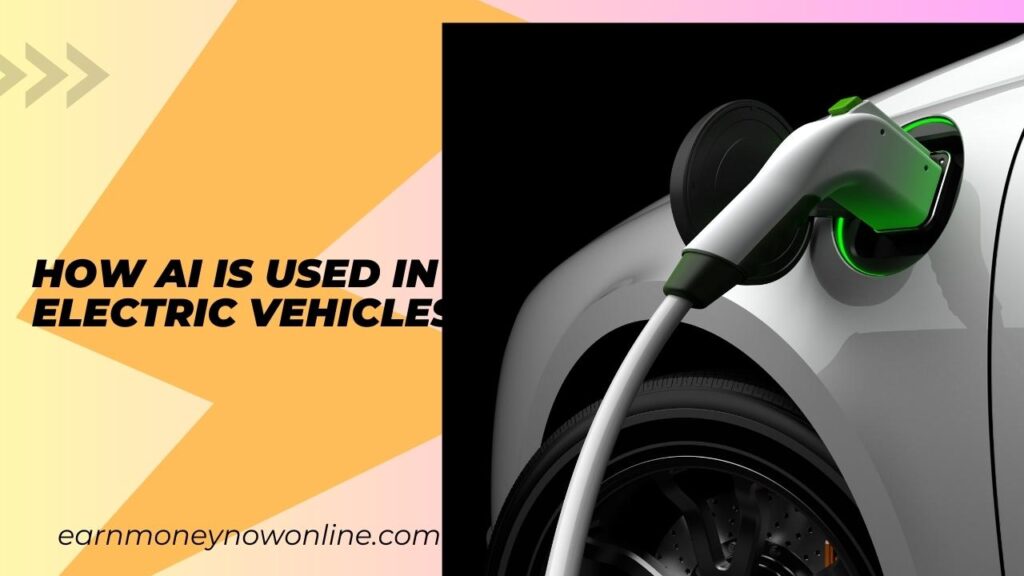Artificial Intelligence (AI) has revolutionized numerous industries, and one area where its impact is becoming increasingly significant is in the field of electric vehicles (EVs). AI technologies are being integrated into various aspects of EVs, ranging from battery management and energy optimization to autonomous driving capabilities. Now, do you know how AI is used in electric vehicles? This article explores how AI is used in electric vehicles and the benefits it brings to the rapidly evolving transportation sector.
Introduction
The rise of electric vehicles is reshaping the automotive industry, offering a cleaner and more sustainable mode of transportation. Artificial intelligence plays a crucial role in advancing the capabilities of electric vehicles, making them smarter, more efficient, and safer to operate.
AI in Battery Management
AI algorithms are used to monitor and manage the performance of electric vehicle batteries. By analyzing various data points, such as temperature, voltage, and current, AI systems can optimize battery charging and discharging cycles, prolonging battery life and enhancing overall efficiency. These algorithms also enable accurate battery health monitoring, detecting potential issues before they become critical.
Energy Optimization
AI-based energy optimization algorithms help electric vehicles maximize their range and efficiency. These algorithms consider factors like traffic conditions, weather, and driver behavior to optimize energy consumption and provide real-time recommendations to drivers. By continuously learning from data, AI systems adapt to individual driving patterns, further improving energy efficiency.
Autonomous Driving
AI technologies are a cornerstone of autonomous driving in electric vehicles. Through a combination of sensors, cameras, and AI algorithms, EVs can analyze their surroundings, detect objects, and make intelligent decisions in real-time. AI-powered self-driving features enhance safety, reduce accidents caused by human error, and offer a more convenient and comfortable driving experience.

Enhanced Safety Features
AI-driven safety features are integrated into electric vehicles to mitigate risks and improve road safety. Advanced driver-assistance systems (ADAS) rely on AI algorithms to detect and respond to potential hazards, such as collisions, pedestrian detection, and lane departure warnings. These features provide an extra layer of protection for both the driver and pedestrians, making electric vehicles safer on the roads.
Predictive Maintenance
AI enables predictive maintenance in electric vehicles, helping to prevent unexpected breakdowns and reduce repair costs. By analyzing data from various vehicle sensors, AI systems can identify patterns and predict when components might fail. This allows for timely maintenance and replacement, minimizing downtime and maximizing vehicle availability.
Improved User Experience
AI enhances the overall user experience in electric vehicles. Voice recognition systems, natural language processing, and intelligent personal assistants enable drivers to interact with their vehicles seamlessly. AI-powered infotainment systems provide personalized recommendations, navigation assistance, and entertainment options tailored to individual preferences, creating a more enjoyable and connected driving experience.
Environmental Impact
The integration of AI in electric vehicles contributes to reducing the environmental impact of transportation. By optimizing energy consumption, AI helps to extend the range of electric vehicles and reduce reliance on fossil fuels. Additionally, the use of AI algorithms in traffic management systems can enhance traffic flow, minimizing congestion, and lowering carbon emissions.

Conclusion
Artificial Intelligence is revolutionizing the electric vehicle industry, bringing numerous benefits and advancements. From battery management and energy optimization to autonomous driving capabilities and improved safety features, AI technologies are propelling the electric vehicle revolution forward. As AI continues to evolve, we can expect even more innovative applications that will shape the future of transportation.
FAQs
Q1: Can AI improve the efficiency of electric vehicle charging?
Yes, AI algorithms can optimize the charging process of electric vehicles by considering factors like energy demand, grid conditions, and user preferences. This helps to minimize charging time and maximize efficiency.
Q2: Are AI-powered electric vehicles safer than traditional vehicles?
AI-powered electric vehicles have the potential to be safer than traditional vehicles. The integration of AI-driven safety features, such as collision detection and lane departure warnings, can significantly reduce the risk of accidents caused by human error.
Q3: Can AI enable fully autonomous electric vehicles?
Yes, AI technologies play a vital role in the development of fully autonomous electric vehicles. Through a combination of sensors, cameras, and AI algorithms, EVs can analyze their surroundings, navigate complex road conditions, and make informed decisions without human intervention.
Q4: How does AI contribute to energy efficiency in electric vehicles?
AI optimizes energy efficiency in electric vehicles by analyzing various factors such as traffic conditions, weather, and driver behavior. This data-driven approach enables AI systems to provide real-time recommendations for energy-saving driving techniques, maximizing the vehicle’s range.
Q5: What are the environmental benefits of AI in electric vehicles?
The integration of AI in electric vehicles helps reduce the environmental impact of transportation. By optimizing energy consumption, AI enables extended vehicle range and decreases reliance on fossil fuels, contributing to a greener and more sustainable future.
In conclusion, AI plays a vital role in shaping the future of electric vehicles. From battery management and energy optimization to autonomous driving and enhanced safety features, AI technologies bring numerous advancements to the electric vehicle industry. With ongoing research and development, we can expect further integration of AI, leading to even smarter, more efficient, and environmentally friendly electric vehicles.



















